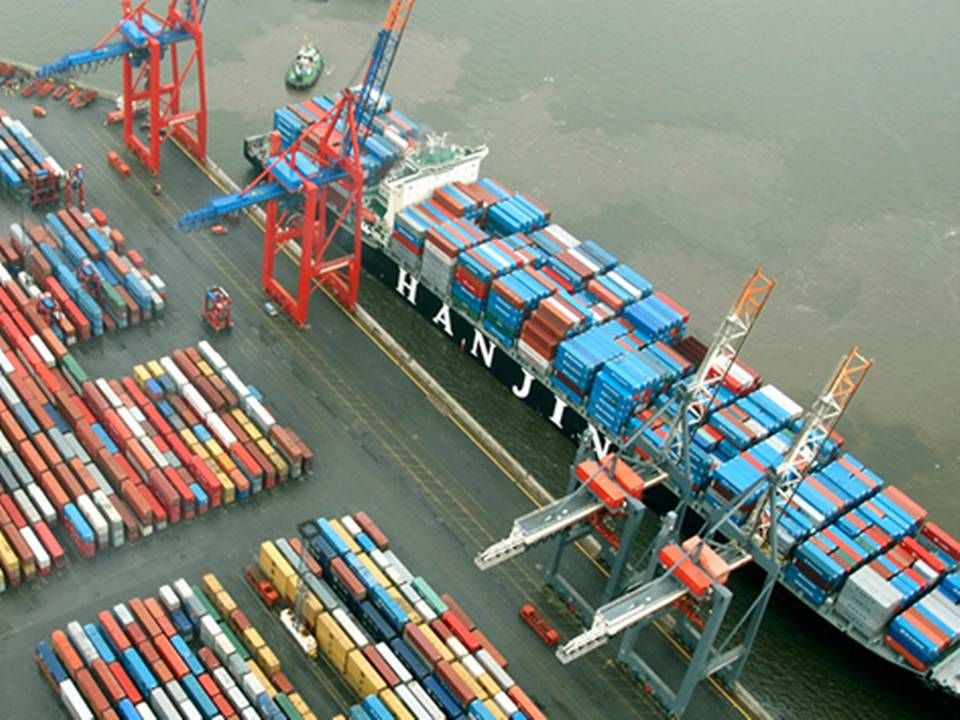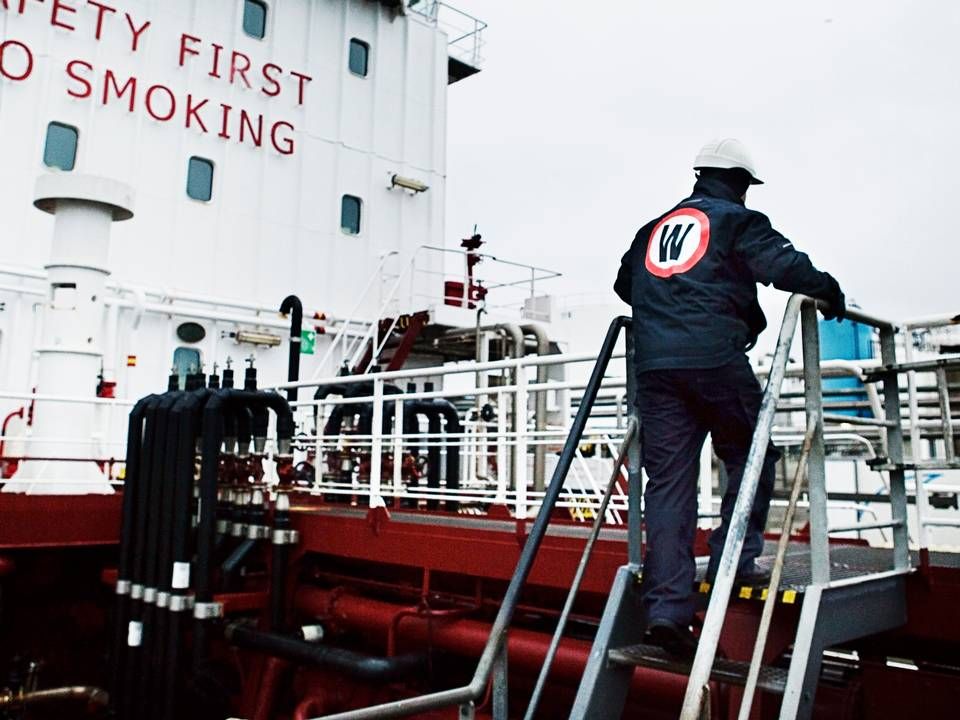Bunker Holding now targeting global top spot

An elimination race in the international bunker industry looks well on its way to be significantly intensified in the coming years, with the biggest companies leaving the large group of local and regional players in their wake.
Today, American World Fuel Services and the Danish Bunker Holding stand out clearly as the world's two largest bunker companies, as both rank well above even the double of the volume and turnover of the third company beneath them on the list of the biggest global bunker players.
Try a free 40-day trial subscription to ShippingWatch
And Bunker Holding's CEO Keld Demant can easily see this development unfold after the announcement this week that the Danish bunker group has entered a billion dollar deal with eight Danish and international banks, which increases Bunker Holdings' financial framework by 50 percent to an overall total of around USD 1 billion. The agreement on the purchase is unsecured, meaning the banks do not have a lien on assets in the lucrative bunker group.
"We have seen the two businesses stand significantly apart from all the others, and in this respect one can imagine that there will be two very major players relative to the rest of the industry. This is the scenario that seems to be emerging, and Bunker Holding wants, and expects to, play a significant role in the coming years, with the ambition to become number one or two in the world," Keld Demant tells ShippingWatch:
"We are on the inside and playing a role in how the industry will develop in the future."
Bunker Holding acquires major US-based competitor
The heavily expanded capital base in Bunker Holding in the new bank agreement includes an option for a further increase of the financial framework, if the group's growth plans make it necesary. The ambition is to secure organic growth in the form of major contracts with customers and as well as hiring more employees.
"On top of this, one could easily imagine that one or two companies will come under our umbrella in the coming period," says Keld Demant.
OW the smallest trigger
Bunker Holding has most recently acquired US-based LQM Petroleoum Services, which is one of the largest brokerage firms in the global bunker market. The company handles around 10 million tons of bunker oil annually, serving around 250 customers globally and has a strong presence in the US.
"With this acquisition, we're still in second place as a bunker company. At least for a little while," said Demant to ShippingWatch following the announcement of the American purchase in July.
Try a free 40-day trial subscription to ShippingWatch
The list of the ten largest bunker companies includes companies such as Chemoil, Aegean Marine Petroleum, Cockett Marine Oil and Peninsula Petroleum.
According to Keld Demant, the collapse of OW Bunker back in November 2014 and the group's subsequent exit acts as the smallest trigger for the developments taking place right now in the international bunker industry.
"We have seen the shipping industry get some major players, and the ones that aren't big join together in pools. But too many bunker companies have not capitalized sufficiently in time, nor have they established the necessary organization. Today, we see three kinds of bunker companies. The little local and often family-owned business, which are typically strong in one single port, and these will likely be fine. Then we have the large international companies with significant organizations holding them up. Between these two types of bunker companies we have a veritable mass of companies who work regionally. They’re the ones who are struggling,” says Demant and continues:
Consolidation takes off
"The large middle group must decide whether they want to have the capacity to grow amongst the 10 biggest, whether they will settle for being a local player, or whether they will become one of the large companies. This last one, in particular, is a development I note right now. It is a process which began about a year and a half ago, and which now has picked up speed. OW Bunkers’ exit has spurned it on, though it has not been the primary trigger."
Try a free 40-day trial subscription to ShippingWatch
The decline in oil prices has given the small and medium sized bunker companies a little breathing space, because it requires less capital for the same amounts of oil, explains Keld Demant:
"I still think this is a temporary effect. We're still dealing with relatively large sums of money in this industry."
Intense competition
The Bunker companies' battle for customers and competition among oil trades seems now to be more intense than has been the case in years. Former employees of OW Bunker have been snatched up by other companies, including Bunker Holding, and are fighting for the same customers and, in Keld Demant's words, for "every last cent per ton":
"This has definitely put pressure on the market, and if you don't have economies of scale and the necessary capital to position yourself in the best way possible, then it can become a battle that can squeeze the last drop of blood out of some companies. This is a development which has clearly intensified over the summer. It is also linked to the fact that most places in shipping aren't going through lucrative times. Costs are being examined all across the shipping industry, and this is a challenge for many of the small bunker companies."
Bunker Holding secures USD 650 million loan facility
Drewry: Container carriers creep into the black in 2015
OW trustees win first round in court battle for oil totaling millions
Related articles
Bunker Holding secures USD 650 million loan facility
For subscribers
Drewry: Container carriers creep into the black in 2015
For subscribers





















